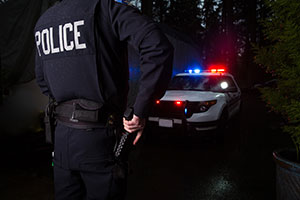A defense expert in a capital murder case has been disqualified for insufficient credentials.
The Crime
On January 13, 2018, Dr. Shauna Witt, an optometrist, was seeing a patient at a Walmart Vision Center in Starkville, Mississippi. Her ex-boyfriend, William Thomas “Tommy” Chisholm, entered the store and proceeded into a patient room. Dr. Witt told Chisholm to go away and he pulled out a gun. Dr. Witt tried to escape but didn’t make it.
Dr. Witt’s assistant, Kaylace Dorman would later testify that “I remember seeing Tommy pointing the gun and hearing shots…I remember hearing shots and I remember looking at her, looking at Dr. Witt and thinking she was going to get away. Then I saw her get hit and fall in the corner near the door.” The incident was also captured by surveillance video and first responder body cameras.
Dr. Witt died as the result of her injuries. Chisholm was charged with capital murder in connection with the crime.
The Proposed Expert
Chisholm faced trial in Oktibbeha County Circuit Court before Judge Lee Howard. His defense was that he was not guilty by reason of insanity.
The defense team presented Dr. Jennifer Carroll, a licensed professional counselor, as an expert witness. Dr. Carroll performed an evaluation on Chisholm’s mental state at the time of the incident. While Dr. Carroll works in the field of psychology, she is not a licensed psychologist or licensed to practice any type of psychology. Instead, she is a counselor who holds a doctoral degree in general psychology.
Assistant District Attorney Marc Amos argued that in the state of Mississippi, it is illegal for someone to claim to be a psychologist or to practice psychology without a license. Dr. Carroll claimed to do both on her curriculum vitae.
Judge Lee Howard ruled in the state’s favor, reasoning that only a licensed psychologist or psychiatrist may be hired to perform a mental evaluation on a suspect.
Chisholm’s defense attorney Mark Cliett moved for a mistrial, claiming that the defense team was under the impression that Dr. Carroll had the credentials required to testify. “We were under the impression from talking to Dr. Carroll that she was able to make these opinions to a reasonable degree of psychological certainty, and all of the issues that were addressed on cross-examination about a license and accreditation, I addressed those things to her,” Cliett said. “She assured me that she was able to make those opinions.”
Judge Howard denied Cliett’s motion.
Judge Howard allowed the admission of previously recorded testimony by Dr. Robert M. Storer, a licensed psychologist, who had evaluated Chisholm in June 2019. This video was only intended to be used as rebuttal if the defense had presented an expert witness, but both parties agreed that the recording could be shown.
Dr. Storer testified that Chisholm was in a proper state of mind at the time of the crime. “Based on all of the information that I reviewed… in my opinion, to a reasonable degree of psychological certainty, Mr. Chisholm did not have a mental disease, defect or disability that could have interfered with his ability to know the nature and quality of his alleged acts or the wrongfulness or those alleged acts at the time of the offense,” he said.
Trial Result
Following a four-day trial and 26 minutes of deliberation, a jury found Chisholm guilty of murdering Dr. Shauna Witt. Chisholm was sentenced to life in prison without the possibility of parole.













